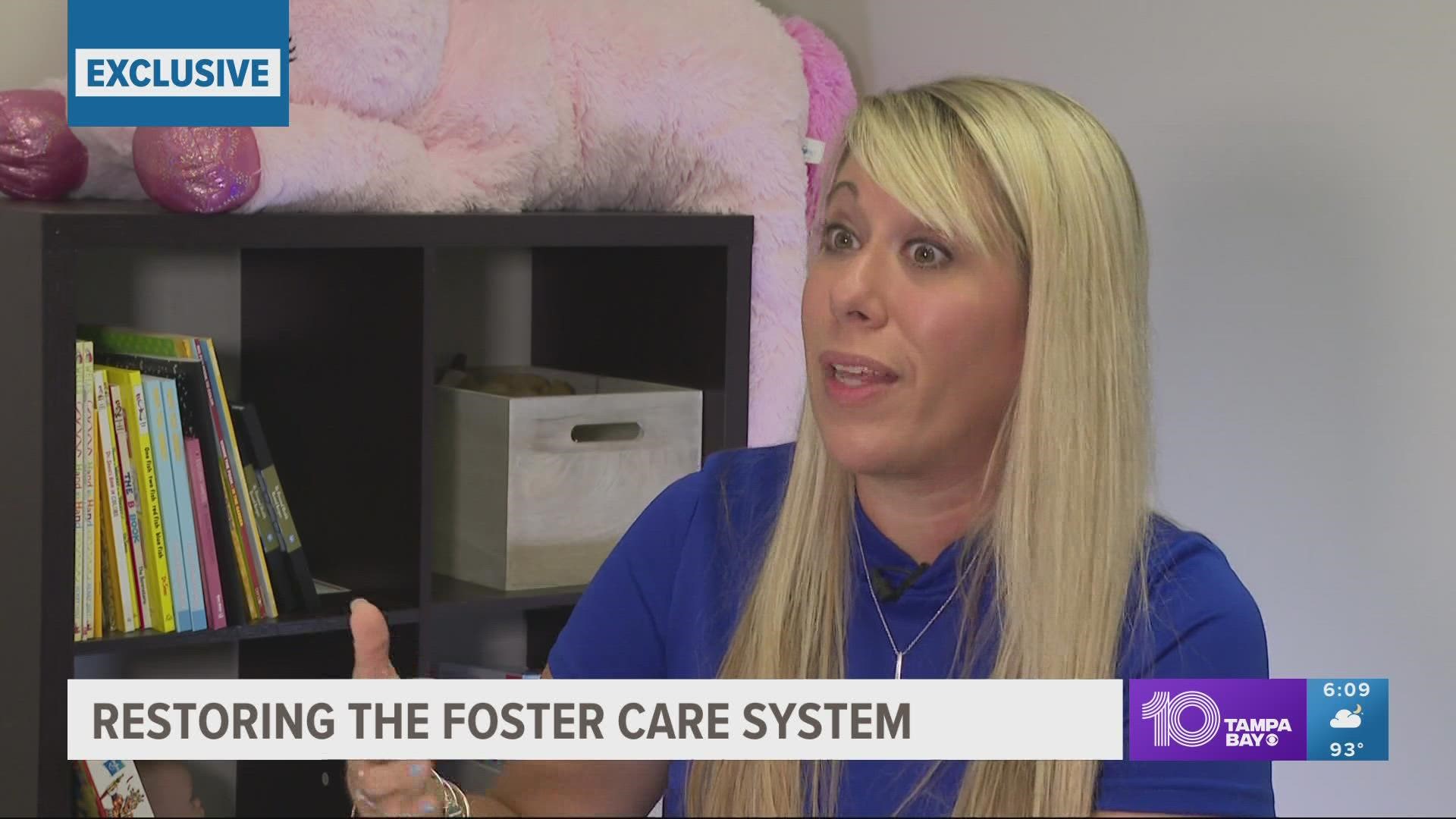LARGO, Fla. — It's been six months since the new agency in charge of the child welfare system in Pinellas and Pasco counties has taken over.
The Florida Department of Children and Families (DCF) named Family Support Services (FSS) the lead agency in November following a criminal investigation looking into Eckerd Connects, the former long-time lead agency in the Tampa Bay area whose contract was terminated with DCF at the end of 2021.
At the time, the Pinellas County Sheriff's Office reported Eckerd had about 60 to 70 kids who were considered to be under a night-to-night status, meaning the kids didn't have a regular placement and were moved around on a nightly basis.
Investigators said some of those kids slept on cots or under desks at Eckerd's administrative office in Largo without clean clothes or hot meals.
FSS was walking into a crisis situation and would need to rebuild and restore an entire system.
"We knew that it was a crisis situation and that the system had become very fractured over time," president and CEO of Family Support Services Jenn Petion said.
In an exclusive interview, Petion told 10 Tampa Bay about the agency's plan to change the culture of the system and get back to a core mission of serving children and families.
"We need to do what’s best for them (children) even if it means more work for us or one agency or the system, when we put what’s best for the child at the forefront, everything else falls into place," said Petion who is based in the Jacksonville area where FSS serves Duval and Nassau counties.
The four main areas FSS is focused on in Pinellas and Pasco are:
- Workforce capacity
- Placement stability
- Front end preservation
- Permanency
Workforce capacity: Petion said the community doesn't have enough case managers on the ground to work with children and families and at one point only had nine of thirty positions filled. Since taking over in January, FSS has increased starting salaries for case managers from $37K to $52K. They're recruiting more to the team.
Placement stability: FSS aims to ensure children have adequate places to go to be healed and cared for. This includes foster homes and other wrap-around services that meet the needs of a child whether that be counselors, social workers, trauma specialists, etc.
Front-end preservation: The goal of FSS is to keep a child with their family so the agency is looking to provide more services to a family on the front-end to better the situation before it escalates to the removal of a child.
"They love their children but they’re battling addiction," Petion said. "They’re in a relationship that was once maybe meeting their needs but now is harmful and so we can work with them and partner with them along their own healing journey to get them to a place where they’re able to be safe parents."
Permanency: Foster children in Pinellas and Pasco counties have been in the system for too long, according to Petion who is working with her staff to reunify children with their families, find adoptive families, or prevent kids from ever going into the system, to begin with.
"The system really got too overloaded," Petion said.
How are they changing the culture?
FSS says the state legislature addressed the funding shortfalls and since then, the agency has been able to hire more professionals, enhance services and pay better.
If you ask Petion, it's "a new day for foster children" in this area but she admits, changing perception will take time.
"In this community foster care had gotten a really bad rap, and so we know as we’re out there trying to recruit additional foster homes, they need to see, the community needs to see us show up differently."
Joshua Nwajei has been a foster parent in Pinellas County for three years inspired by his time as a Guardian ad Litem.
At the end of 2021, he said the system was disastrous as the state made the transition from Eckerd Connects to FSS however since then, he believes it's gotten better.
"There’s still a lot of things that need revamping or improvements specifically with case management but I have seen different programs focused on keeping kiddos with relatives if it’s safe to do so and more up-front services," Nwajei said. "I am noticing there are less kids coming into foster care in Pinellas County."
He said the same problems with burnt-out case managers and a lack of communication persist however after almost walking away from his role as a foster parent in 2021, Nwajei is feeling hopeful.
"It’s very hard to see children hurting and you take on a lot of that pain but who else is going to stick up for these children?" Mwajei questioned. "Who else is going to guide them into adulthood? They need us."

